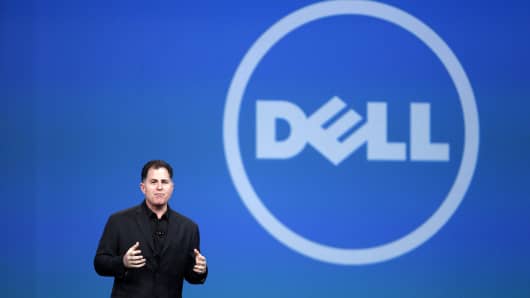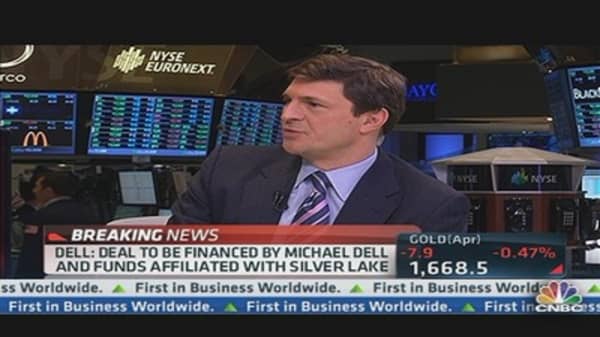Still, the J. Crew shareholders were treated much better than those of Landrys, which was taken private by its C.E.O., Tilman J. Fertitta, after a two-year ordeal. In 2008, he initially offered $23.50 a share. Then, as Mr. Fertitta's financing fell apart, he dropped the offer to $21 and subsequently to $13.50 a share. He was ultimately pushed into paying $24.50 a share after the hedge fund Pershing Square Capital Management took a significant stake in the company.
At least the Landrys shareholders ended up with a better price when a hedge fund stepped in. This did not happen with CKX, the owner of the "American Idol" franchise.
Robert F.X. Sillerman, CKX's chief and major stockholder, tried to take the company private for years, initially offering a deal that valued the company at $13.75 a share in 2007. The board let him do this despite not having financing. That deal unraveled. But he came back for more, teaming up with Apollo in 2011 to finally buy his company at $5.50 a share.
Why do boards allow this to happen? Directors often feel there is no choice and that if the board says no they will be left not only without a deal but with very unhappy management. And many times other bidders are not willing to jump in because they do not have management on their side.
The sentiment was aptly summarized back in 2007, when Institutional Shareholders Services recommended that its clients vote for the management buyout of OSI Restaurant Partners, the owner of Outback Steakhouse. I.S.S. stated:
We recognize the shortcomings in the process and the conflicts of interest of management and founders … but given the downside of a failed transaction resulting in a loss of premium and likely continued deterioration of fundamentals, support for the transaction is warranted.
In other words, the transaction is preferred because it is the best of bad choices. And at least one study has found that when management preannounces a deal it results in lower premiums presumably because it scares off other bidders.
The J. Crew buyout goes to another issue: process. Management can use its control of a company to manipulate the sale process to its own benefit.
In the buyout of RJR Nabisco – made famous by "Barbarians at the Gate" – the chief executive of the company, F. Ross Johnson, tried to organize his own buyout without knowledge of his board. He ultimately lost the frenzied bidding for the company in part because the board thought he was trying to to manipulate the directors into selling on the cheap.
Unfortunately, Mr. Johnson's conduct is not some 1980s relic. In the case of J. Crew, Mr. Drexler planned a buyout with his partners for weeks without telling the board, using company information in the process.
To help prevent these problems, special committees of independent directors are formed to consider a buyout. The directors are supposed to have an independent voice, but sometimes they are unable to stand up to management. Then there are the cases where they try and say no, and clash with management.
In a 2007 buyout attempt of Affiliated Computer Services by Darwin Deason with Cerberus Capital Management, board members heavily criticized the deal. Mr. Deason's response was to attack the board. Five Affiliated Computer directors resigned in protest and Mr. Deason was faulted for trying to manipulate them. The company was ultimately sold to Xerox for $6.4 billion in a deal in which Mr. Deason pocketed an extra $300 million. Shareholder litigation over that extra payment eventually yielded a $69 million settlement.
Then there is the Bankrate buyout, where the managers simply did not bother with a special committee. Bankrate's management and two of its directors bought the company pursuant to a sale process that also came under heavy criticism by Institutional Shareholder Services. The board contacted only one other potential buyer and failed to form a special committee. The directors then negotiated exclusively with the management team.
Again, the buyout group reduced the price offered at the last minute. The takeover only succeeded because interested management owned 26 percent of the shares and voted for the transaction. Only two years later, Bankrate went public again.
Finally, management-led buyouts have come under criticism when management joins with a private equity firm. The reason is that managers can simultaneously cash out some of their stock in the buyout while receiving yet more stock in the newly private company. It is a great opportunity that regular shareholders do not have. One study has found that in the average buyout, management receives $52.2 million by selling stock, and then reloads with stock in the newly private company, which on average represents 21.9 percent of the new company.
While some management-led buyouts no doubt serve both shareholders and management, there are clear perils. Dell will need to file documents with the Securities and Exchange Commission describing its sale process and negotiations with its buyout group.
These past deals show why Dell shareholders will be scrutinizing these documents very carefully to learn about Mr. Dell's involvement in the buyout process and whether they are getting a good deal.




